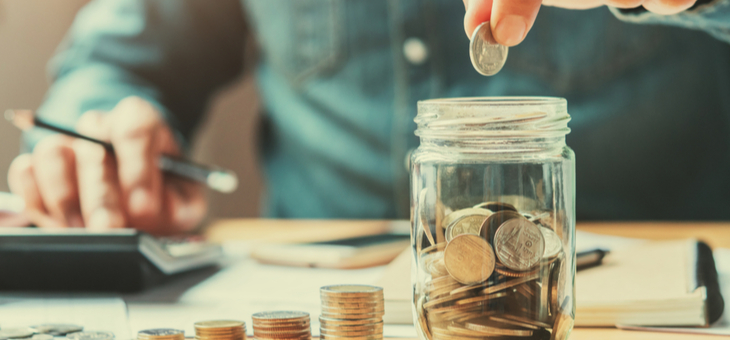Saving money is not just about hunting down the best deal. It’s about making smart decisions and having wise and frugal outlooks on all that we do. Here are my eight practical tips to help free up your cash flow and boost your savings.
Implement a waiting period system before purchases to delay the temptation.
It is not a bad idea to implement a system whereby you refrain from making a materialist purchase until you have waited at least one hour. If you are about to make a purchase, put the item down and wait 60 minutes. It may mean you need to come back tomorrow, or quite simply miss out. If you become obsessive-compulsive about the one-hour rule, your spending will drop dramatically.
Eat clean, save mean: stop letting food ruin your budget.
We talk about eating at home to save money, but have you considered that eating and drinking at home also has considerable health benefits?
When you eat at a restaurant for breakfast, lunch or dinner, you have zero control over how the food is prepared, cooked or treated before eating. Even the healthiest of lunches can be cooked in incredibly bad saturated fats and oils.
Save money by eating dinner before you go out with friends, having pre-drinks at home before a night out and ensure that your regular breakfasts and lunches are prepared at home. If you can’t get motivated by how much you will save per day, think about how much you will save per year. For instance, $12 each working day on lunch for a whole year is almost $3000.
Cancel repeating subscriptions as it guarantees that your money will go down.
Items such as Foxtel, Netflix, magazine subscriptions and access to games, apps and TV shows are costing Australians billions.
As a rule of thumb, the first place you should always look to cull to save money is on items that take a regular debit from your account on a monthly or yearly basis. We quite often find ourselves loaded up on materialistic things or services that seem essential when we have lots of money, but they are not relevant when we are trying to save money.
Always ask for a discount.
We all have friends who are embarrassed to ask for discounts or attempt to barter with sales staff. However, what they don’t realise is that sales staff see asking for a discount as entirely normal. It’s part and parcel of their role. Sometimes, it is actually expected.
Make a promise to yourself: The next big ticket item that you buy for over $50, ask for a discount. Or, for the advanced user, why don’t you ring existing providers and mention you will switch to another provider unless they give you a better deal? The ‘hit list’ would include a mobile phone, home phone, internet, gas, electricity and other providers.
Maintain your personal goods properly to extend their life.
Taking pride in the items we own is essential. If you buy a house and fail to maintain it, it will become unliveable. If you buy a pair of shoes and simply wear them without regular cleaning and upkeep, they will eventually fall apart.
If you apply this money-saving principle to everything you own, think about how much wastage you would avoid, as well as how much money you would save. Taking time out of your week to simply clean, maintain and love the belongings that have cost you money will help make them last longer. In turn, you will save money while disengaging with the materialist lifestyle.
Buy used products instead of new.
By default, we assume that if a washing machine breaks, we need to go to the store to buy a new one. In fact, the phrase ‘new one’ is so entrenched in our vernacular that it now symbolises buying ‘brand new’ and not just a ‘different’ item.
What’s stopping you from checking out eBay, Gumtree or other classifieds to find a near new version of what you need? Whether it be a car, TV, bedroom furniture or household appliances, buying used products or second-hand items is an incredibly easy way to avoid high margin retail rip-offs.
Challenge everything that costs you money (every single expense).
You have between now and retirement to make money. After that, the money stops coming in regularly, and you need to rely on your savings, superannuation and any investment returns your money makes. Therefore, it is essential to start questioning and challenging your daily expenses and things that regularly cost money.
Challenge yourself to find a better deal, or to find creative ways not to spend the money. Don’t act like a dollar here and there isn’t going to add up over the long term – every dollar is sacred.
Hot tip: Cutting your spending is more valuable than increasing your income. While a high income would be nice, a small income with smart spending can be just as good – if not better. I like to think of it like this – every time you reduce your expenditure, you have the double benefit of having more money left over and the ability to use that money to generate more money. Once you know exactly how much money you really need, you can start to plan your time better. As an example, you could work less and travel more if you took a job that simply covered your necessary lifestyle expenses rather than chasing substantial and long-term dreams that keep you chained to a desk.
Helen Baker is a financial adviser, author, speaker and spokesperson for online finance information platform Money.com.au.
Are you a dab hand at asking for a discount? Do you enjoy shopping around for second-hand goods?
If you enjoy our content, don’t keep it to yourself. Share our free eNews with your friends and encourage them to sign up.
Related articles:
Super returns defy virus gloom
Old or young: who’s worse off?
Bank ‘support’ you should avoid

